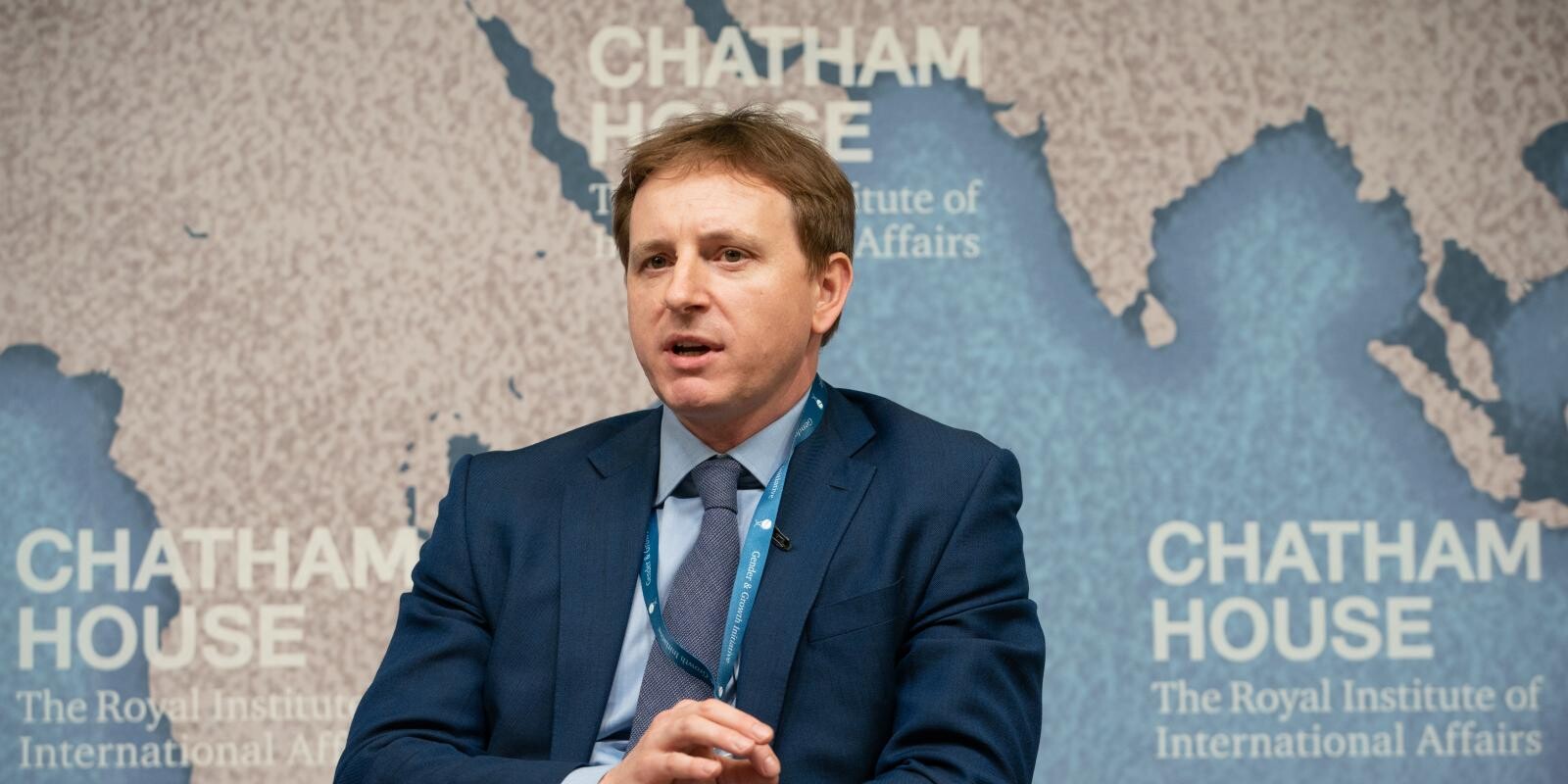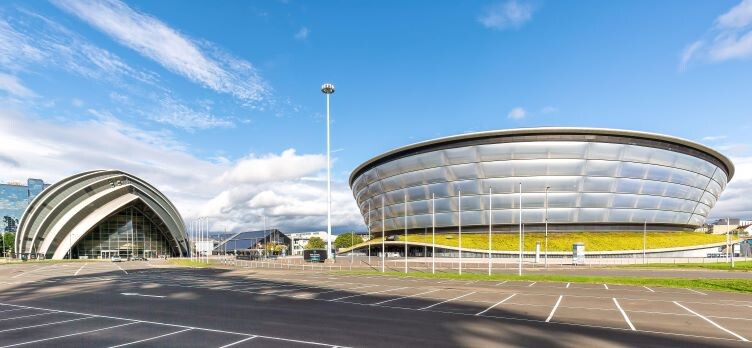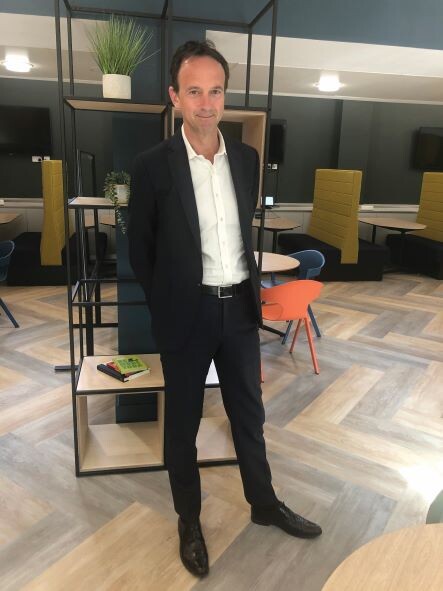The Cop26 summit will be the biggest ever international event held in the UK. Richard Johnstone speaks to two senior civil servants about the planning for the conference, and the long nights ahead
At the end of this month, more than half the world’s leaders are expected to descend on Glasgow to take part in the Cop26 climate change conference – two weeks of intense negotiations and public events focused on one stark aim.
The core task for those leaders and their teams, according to the UK official who has been leading preparations for the event, is to “keep the prospect of limiting global warming to 1.5°C alive”.
Peter Hill has been chief executive of the UK’s conference presidency team since October 2019. In that time, the necessity of limiting global warming to 1.5°C has become starker. The figure was set in the breakthrough 2015 Paris climate change agreement, which committed the world to keeping the figure below 2°C below pre-industrial levels and preferably 1.5°C.
But recent Intergovernmental Panel on Climate Change studies demonstrate a big difference for the planet of a 1.5°C increase versus 2°C. A 2021 IPCC report showed, for example, that 14% of the world’s population would face severe heatwaves every five years under 1.5°C of global warming, but if temperatures rise by 2°C then this proportion rises to 37% of the global population. The same report found that global maize crops and marine fisheries could decline by twice as much if temperatures rise by 2°C rather than 1.5°C.
So the stakes are high, and there is little time to lose. “The challenge for us all is: what are we going to do to limit that warming to 1.5°C?” says Hill as the talks near. “That's not a 50-year or 100-year question, that's a now question. I think that will be one of the big points of Glasgow. Are we able to come out and say ‘We've made significant progress, and we've also agreed that we need to do more’?"
The event, which will run from 31 October to 12 November, will see 130 world leaders arrive in Scotland’s biggest city. It will be the culmination of two years of work for Hill, who was previously the prime minister’s principal private secretary.
Initially, the conference was due to take place in November 2020, but the coronavirus pandemic led to a 12-month postponement for what represents the most significant global meeting on climate change since those Paris talks.
We've also learned a lot about how to do that in a way that is really sustainable
Alex Chisholm, the civil service’s chief operating officer, tells CSW that the talks represent a chance for nations to “reset commitments on the back of everything that we've learned in the intervening years, which have emphasised the importance of limiting increases in global temperatures by reducing carbon emissions”.
He says that since Paris “we've also learned a lot about how to do that in a way that is really sustainable, that works with economic growth, and that has broad support across very different communities”.
The conference will have a key role in developing that support, Chisholm says, with public events included in the schedule. Such support is needed because “it is a marathon not a sprint” to reach net zero by 2050 – a goal which the IPCC has said is essential to keep global warming below the 1.5° target, and which the UK was among the first major economies to commit to.
“You're probably talking another six or seven administrations between now and then,” Chisholm, says. “That's a lot of electoral cycles to get over, and that's just in the UK, and every country in the world needs to play its part. This will only work if it has broad based support, and that requires people to be engaged and enthused and convinced and playing their own part in it.”
In total 25,000 people are expected to converge on Glasgow for the event, including representatives from the 197 countries that have signed up to the United Nations Framework Convention on Climate Change. Hill says the UK has been taking a campaigning role to get countries, regions, cities and businesses to commit to take climate action.
“Much of the work of the Cop is done in the two years running up to the event,” he says. “When you see people making pledges – whether on finance or climate action – those are generally the result of a lot of influencing, persuading, campaigning. And the vast majority of those will happen in the run up to Cop.”
For countries, these pledges take two forms. The first is an overall pledge to reach net zero, and this is an area where the UK’s presidency has made progress.
“We now have nearly 80% of the global economy committed to some form of net zero. When we started our presidency that was around 30%. And that number has been going up every few days as countries come forward with new commitments,” he says.
The second element is known as nationally determined contributions (NDCs) – short term commitments which set out what nations will do in the next decade or so. It is these which are needed to maintain 1.5°C as a possibility, since without short-term emission reductions we could see warming rise too fast for the net zero by 2050 target to have an impact.
 Here too, Hill (left, speaking at Chatham House) says the UK’s work has yielded commitments. “We have seen progress in those areas where you have to progress in the 2020s – so that is the energy system, the transport system, and on land [use], in particular in forests. And we've seen real progress on the ending of financing for coal, and in the acceleration of the rollout of zero emission transport.
Here too, Hill (left, speaking at Chatham House) says the UK’s work has yielded commitments. “We have seen progress in those areas where you have to progress in the 2020s – so that is the energy system, the transport system, and on land [use], in particular in forests. And we've seen real progress on the ending of financing for coal, and in the acceleration of the rollout of zero emission transport.
“These are important in themselves, and they're proof points that these commitments that countries are making are meaningful.”
What he describes as “huge movement” on both fronts has been down to putting in the hard diplomatic yards. “We've pressed people very hard, and occasionally not made ourselves popular, but I think generally speaking people recognise this has to happen, and the transition has to be faster,” he says.
Every time the world comes together to try and reach an agreement on something like this is different
Over 130 countries have submitted NDCs but, despite this, world leaders will still convene in Glasgow with a large gap between the commitments made and the action needed to limit warming to 1.5°C.
This is where the impact of the talks themselves comes in. Despite the diplomatic legwork, “it's not as if the script is written and we just need to open the envelope” Hill says.
Some G20 countries are among those who have not yet submitted medium-term plans for how they're going to reduce greenhouse gas emissions, so “there are still some big players who, between now and Glasgow or at Glasgow, we're very much hoping will come forward with announcements”.
As the world leaders arrive, negotiations will also be held on two areas of the global climate response – resolving outstanding elements from the Paris deal, and setting the framework for the future shape of international cooperation. Issues left unresolved in the Parisian pact include the rules for carbon markets and transparency regulations for national climate plans. There will also need to be discussions on how to finance the transition to net zero in poorer countries beyond 2025, when existing rules run out.
As the chair of the conference, the UK will act as broker to bring parties together in order to reach an agreement in four areas – mitigation, adaptation, finance and collaboration.
Hill, who brings to this task his experience as the G7 and G20 sherpa for prime ministers Theresa May and Boris Johnson, says that “every time the world comes together to try and reach an agreement on something like this is different from any previous time”.
“We've just got to give ourselves the best shot through our preparation, and then through our handling of the negotiations, to make an agreement possible. In the end this is a process driven by the parties. They have to want to come to an agreement.”
 The negotiations will begin on the very first day, starting at a technical level before moving to a political stage in the second week. Hill will be working with Cop president Alok Sharma in trying to shepherd the negotiations to a conclusion, as well as advising Johnson when the world leaders are all by the banks of the Clyde at the start of the event.
The negotiations will begin on the very first day, starting at a technical level before moving to a political stage in the second week. Hill will be working with Cop president Alok Sharma in trying to shepherd the negotiations to a conclusion, as well as advising Johnson when the world leaders are all by the banks of the Clyde at the start of the event.
The logistical challenge of hosting the event in Glasgow has been vast, and Hill quotes the military dictum “amateurs talk strategy, professionals talk logistics” when discussing how preparations have gone. Planning, led by the Cop delivery board that he chairs, has included the Scottish Government, local authorities and the police to “work through every dimension you could imagine of this problem, and many you probably never thought of”.
An unexpected part of this mix, of course, was Covid, the first cases of which were diagnosed in the same month Hill took up his post. This has provided an added layer of complexity, with the Foreign, Commonwealth and Development Office leading a global vaccination programme for those attending the conference, and the development of a standalone test and trace system. “It's been an extraordinary effort to be able to put on an event of this scale in these circumstances,” he says. “I think the fact that you've now got the majority of the world's leaders going to come, and registrations for attendance, both at the official negotiations and at the public events, running far ahead of what we expected, tells you that people want to come, and they want to be part of it.”
 Chisholm (left) describes the work of hosting the event as a “fantastic challenge for the civil service” that “exemplifies the best in the modern civil service – being skilled, innovative and ambitious”.
Chisholm (left) describes the work of hosting the event as a “fantastic challenge for the civil service” that “exemplifies the best in the modern civil service – being skilled, innovative and ambitious”.
“A lot of skills in a range of different disciplines have been applied to this – you've got climate scientists, logistics experts, security people and public health people involved because of the Covid context, and people who are experts in the environment, and in transport and technology.”
The work of Hill’s unit is just the tip of the Whitehall iceberg that has been focused on stopping the world warming, says Chisholm, as there has also been policymaking to meet the UK’s own net zero target by 2050, and the interim goal of a 78% cut by 2035.
“All the policies that have been necessary against that – whether you're talking about transport decarbonisation, or new waste schemes, or tree planting, or new technologies as they can apply to heating systems – this requires a fantastic cross-government commitment," Chisholm says. "Every department needs to play its part within that.”
There will be over 500 civil service volunteers helping at the Cop, with officials “very strongly motivated by a sense of responsibility and public purpose” to help at the historic gathering.
However, Chisholm acknowledges that reaching net zero overall will need some different skills.
“This requires us to see through multiple phases – being able to make this scale of changes, and to keep those in place. It is a new type of challenge for the civil service,” he says. “We're trying to make sure that our institutional capacity for sustaining that is greater, including a big focus on skills and knowledge-raising, but also by giving people that chance to get involved directly.”
It will be an ever-increasing pace, and complexity, of diplomacy to nudge, cajole and push the world towards an agreement”
Once the conference itself is under way, the official talks will take place in many rooms, and on many issues, simultaneously. As chair, the UK’s job “will be to try and stay on top of all those to understand the dynamics in each room”, Hill says.
“When problems arise, as they inevitably will, and disagreement stalls progress [our role] is to bring people together to try and unlock them. It will be an ever-increasing pace, and complexity of diplomacy to nudge, cajole and push the world towards an agreement on the Friday of the second week.”
With that deadline in mind, how is Hill preparing his team for the long nights that are likely as the talks progress?
“I would be very surprised if this didn't result in several all-night sessions, and towards the end going up to the wire,” he says. He is preparing to “grab a small amount of sleep when I can to be able to keep going in the final mile”.
The fact that the conference will be dealing with issues unresolved in the six years since Paris illustrates “that they're not easy to resolve, and the scale of the challenge, and what has to be done in order to safeguard the planet, is enormous”, Hill says.
“It would be entirely unsurprising if this is going to get quite intense, quite fraught, and go to the wire. And I think all our team are prepared for a good few days of surviving on caffeine and chocolate and whatever else it is gets them through the night.”
He adds that “occasionally, you need a bit of drama” at these events.
“I think one shouldn't be afraid of things getting difficult because these are big issues. That was the way it was at Paris, there were plenty of tempers frayed and difficult moments, and I don't think we should be surprised if we see that again. We're not searching for it, but I think we were prepared for it.”
Hill expects the political leaders at Cop to “have to take stock and say to each other: ‘OK, this is where we think we are, do we think we've done enough?’” And, if they conclude they have not done enough, what will the response be?
“Part of that will be instructing their negotiators to reach agreement on the issues that to date, they've not managed to reach agreement on, so that we can finish Glasgow with a strong signal that the international community is united in accelerating action. Because recent Cops have struggled to finish with that very clear message,” Hill says.
Once the conference itself ends, the UK’s work as Cop president will only just have begun. The UK only formally takes on the presidency from Chile in Glasgow, so it will have a year of convening United Nations Framework Convention on Climate Change meetings in 2022 and supporting its successor as president.
“It's not that Glasgow happens, then we can all pat ourselves on the back and go home for Christmas and go off to something else,” Hill says. “There's a work programme that has to be taken forward, and I'm absolutely sure that the government will want us to continue making the arguments for climate action, because we're not going to solve every problem in Glasgow.”
But if they can keep that target of 1.5°C alive, that will go a long way to making sure those problems can still be solved in the future.